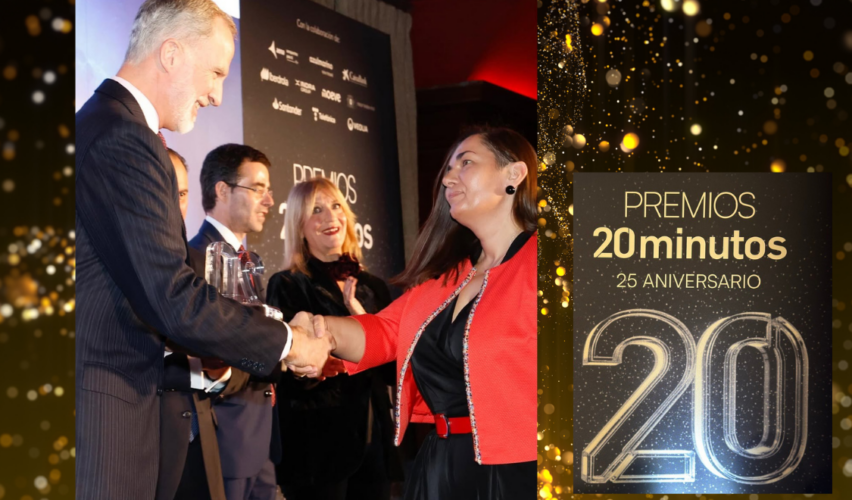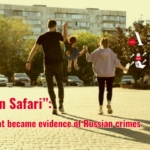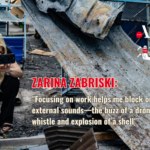When independent journalism becomes a line of defense, every word gains weight. Ukrainian media professionals do not merely record events — they defend the truth. And it is this struggle that has been recognized by the international community: last week, King Felipe VI of Spain presented an award to Oksana Brovko for her contribution to the development of independent media in Ukraine.
Ahead — a conversation with Oksana Brovko about the significance of this recognition, her preparation for the visit to Spain, her meeting with the King, and the new projects and diplomatic initiatives that have grown out of this event.
Congratulations, Oksana, on receiving this prestigious award — both for you personally and for the Association you lead. Could you tell us more about the award itself: how did the organizers reach out to you, and when did they invite you to the ceremony in Spain?
— Thank you. This is truly a valuable recognition, not only for me and our team, but because it gives us an opportunity to speak about the challenges faced by all Ukrainian media professionals working in the regions. Such recognition is a testament to our shared struggle for the most basic yet most precious values — the right to truth, to life, to freedom and dignity, and to remain Ukrainians.
We, the team of the Association of Independent Regional Press Publishers of Ukraine, see it as our mission to preserve independent regional journalism, which is the lifeblood of our country. We believe in our professional journalists and in the power of partnerships that help us endure.
A year ago, we met a wonderful person and colleague — Fernando de Yarza López-Madrazo, President of the Henneo media group. He, together with WAN-IFRA’s CEO Vincent Peyrègne, came to Ukraine at my invitation to meet our journalists more closely. We spent several inspiring days with editors and reporters from regional — including frontline — media, sharing experiences and discussing the conditions in which we work. That encounter grew into a professional friendship and left a deep impression on Fernando.
And just recently, a few weeks ago, I received a message from him saying that this year they are celebrating the 25th anniversary of their media outlet, 20minutos. A few years ago, the company launched these awards to honor individuals and organizations making significant contributions to society, culture, innovation, and freedom of speech. Fernando asked whether I would agree to accept this award — for our work supporting Ukrainian regional media during the war.
For them, the issues of freedom of speech and the development of independent journalism are truly fundamental. Of course, I gratefully accepted the invitation, and a few weeks later, I traveled to Madrid to take part in the awards ceremony and visit the newsroom of 20minutos.
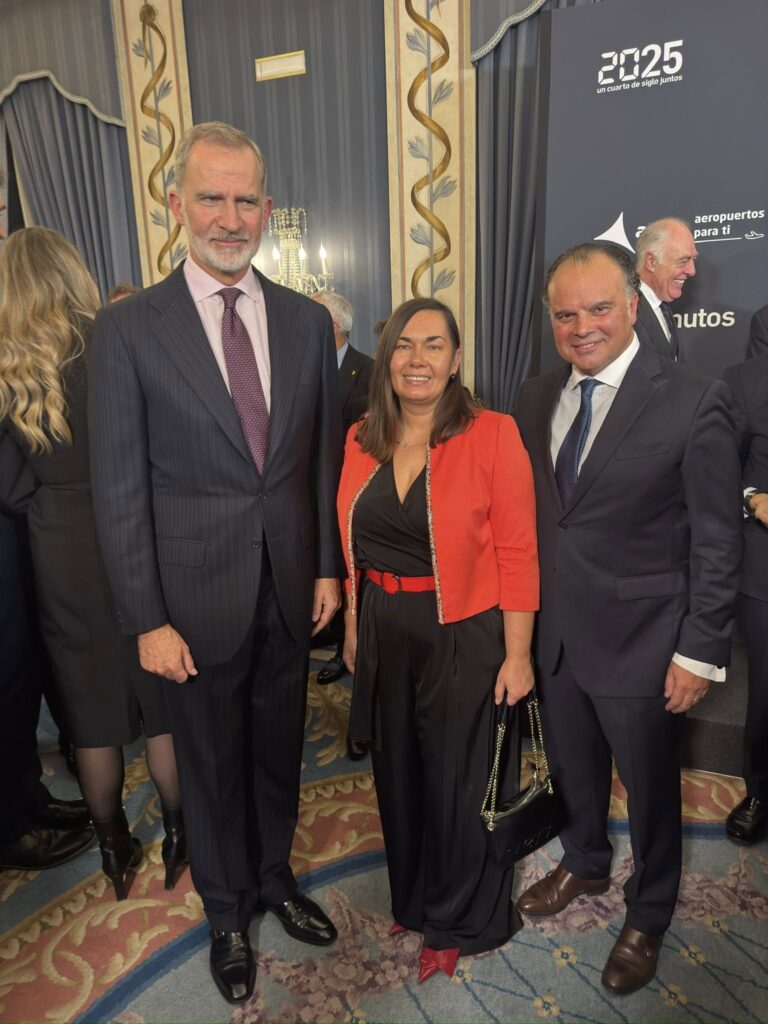
It is worth noting that the award was presented personally by King Felipe VI of Spain — something that does not happen often. Did you know in advance that His Majesty would attend the ceremony?
— Yes, it truly was a special event, and I am very happy that His Majesty made such a diplomatic gesture and personally attended the ceremony to present the award. I knew beforehand that the King would be present, as the event required adherence to official protocol. Naturally, the organizers discussed all the details in advance — scheduling, access, and security arrangements — since the King of Spain was taking part. The rules were quite precise and diplomatically regulated.
You have represented Ukrainian media abroad many times. Did this trip require any special preparation or internal adjustment?
— Yes, it was certainly different from all my previous experiences. Two years ago, we met His Majesty during the World News Media Congress in Zaragoza. At that time, together with a group of Ukrainian media professionals, we had the opportunity to shake his hand and briefly share how we work in Ukraine. This time, however, our meeting was much deeper and far more significant.There were many practical details that required attention — for example, official protocol recommendations on how to greet, how to shake hands, and whether one should curtsy to a king in the modern world. I had to check everything carefully, as it was important to act diplomatically and with respect during a personal meeting. An especially memorable moment was the group «family photo» — according to protocol, only a limited circle of guests is allowed to take a photo together with His Majesty. The protocol precisely determines everyone’s position — even with marked spots on the carpet.
Another challenge was preparing the speech. Only a few people spoke at the ceremony: His Majesty the King, the President of the Henneo media group, the editor-in-chief of 20minutos, and myself — as the recipient of the main award. My first draft was three minutes and fifteen seconds long, but according to protocol, it had to be exactly three. Cutting it down was not easy — editors will understand. Still, on the stage of Teatro Real, I managed to say what mattered most: about the challenges faced by Ukrainian journalists and the strength that keeps us going.
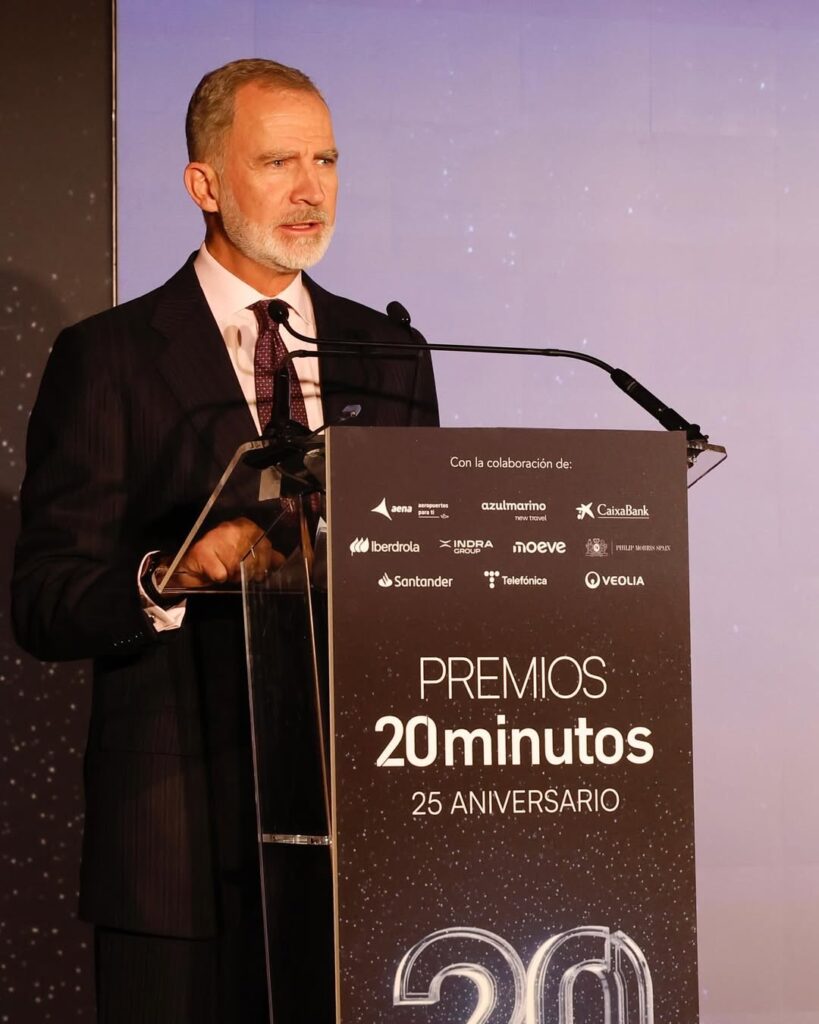
Were you able to speak with the King after the ceremony — about Ukraine and our media?
— Yes, and it was an important professional opportunity. We talked about the «human safaris» the Russians conduct with drones in the Kherson region and other border areas. I told him how journalists, wearing bulletproof vests and standing under anti-drone nets, deliver newspapers to readers in small towns and villages near the front line. About how our cities — those that have become the frontline — are being erased from the map, and how vital regional media are for people who have lost their homes and loved ones.
His Majesty listened very attentively, asked questions, and showed genuine interest in the work of Ukrainian local newsrooms. He shared that just a few days after our meeting, he would be leaving for an official visit to China, where he was scheduled to meet with Xi Jinping. Conversations like this influence the overall tone of diplomatic engagement at the highest level. I am glad that I had the chance to convey the truth about Ukraine — and I am confident that it will continue to be heard.
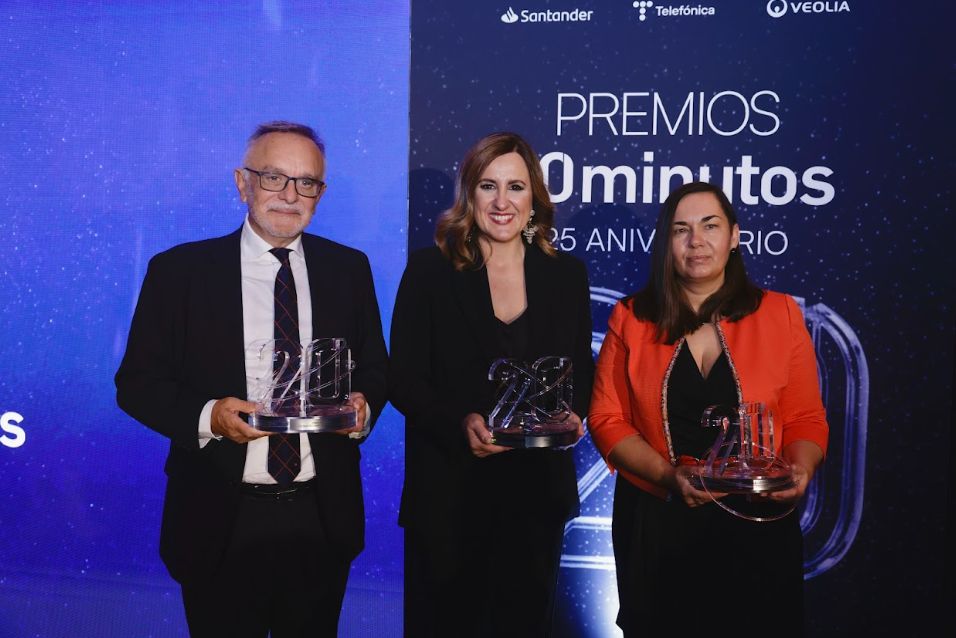
Manel Del Castillo Rey, Director of the Sant Joan de Déu Hospital in Barcelona, and the Mayor of Valencia, María José Catalá
Tell us about the other laureates who also received awards that evening.
— On stage with me were people who are truly changing the world. Manel Del Castillo Rey, Director of the Sant Joan de Déu Hospital in Barcelona, received the award for Social Action. Their project Únicas helps children with rare diseases and supports families going through difficult challenges. It is more than medicine — it is humanity and compassion put into action.
Another award went to the city of Valencia. After the devastating storm in the fall of 2024, the community demonstrated remarkable unity and mutual support. The city’s mayor, María José Catalá, received the distinction of Outstanding City of the Year, and her words about solidarity and courage sounded deeply sincere. That evening, the atmosphere in Teatro Real was filled with a sense of shared purpose — despite different languages and professions, we were united by the same values: love for people and the desire to do good.
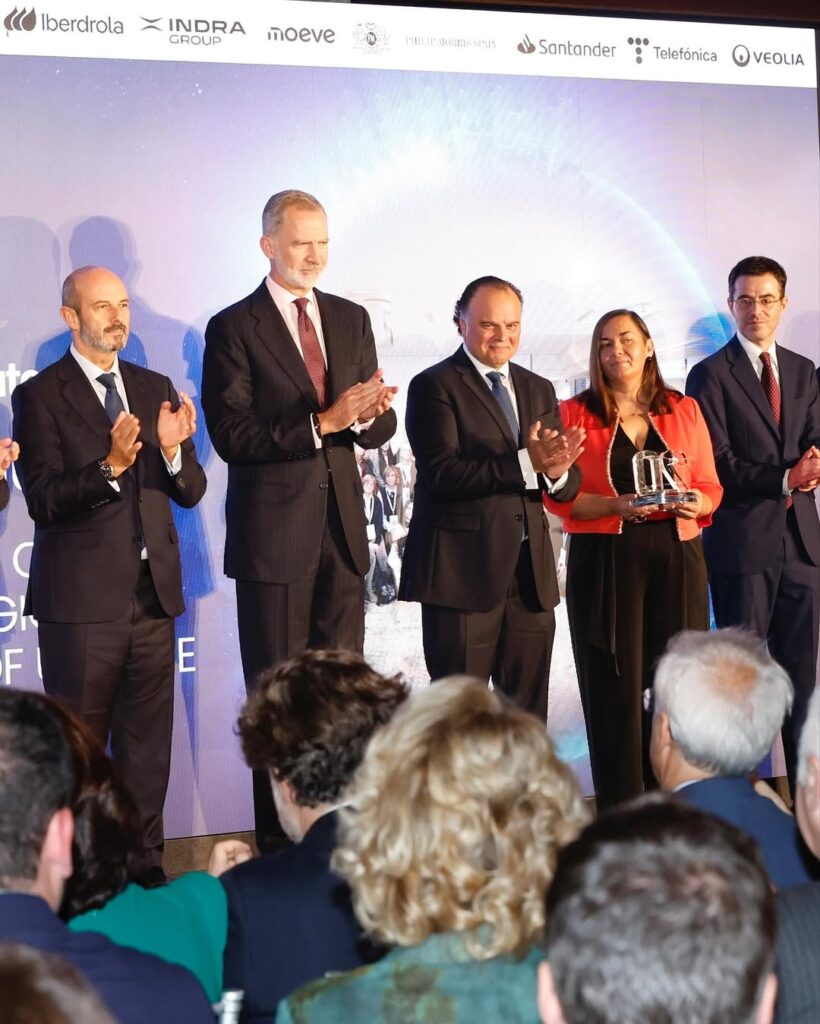
How visible was the attention of Spanish media to events in Ukraine?
— Very noticeable. Even on my way to Madrid, I received numerous messages from journalists requesting interviews. They were interested not only in the war, but also in the Ukrainian media market, the working conditions of regional newsrooms, and the personal stories of our journalists.
It was a genuine professional interest. The questions — from both experienced and young reporters — were warm and thoughtful. You could feel that they truly wanted to understand Ukraine better and convey that truth to their readers. Already now, leading Spanish outlets are publishing stories about us — in print newspapers, online, and on television. This helps sustain global attention to Ukraine and reminds the world that the fight for freedom continues.
Is that how new partnerships are born?
— Absolutely. Such meetings create bridges for new partnerships and international support for Ukraine. When global media tell stories not only about our journalists but also about ordinary Ukrainians, it influences even the political decisions of those countries’ governments.
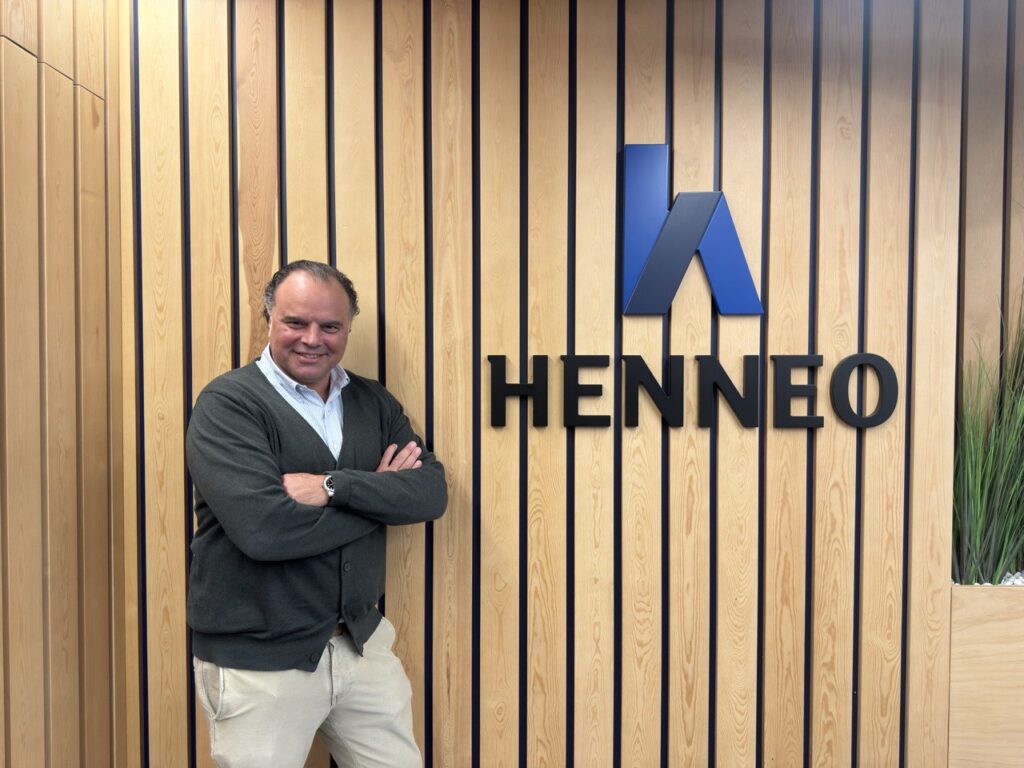
I know you also visited the Spanish media company 20minutos, which organized the award ceremony. Tell us about them.
— Yes, I am very grateful to Fernando de Yarza López-Madrazo, President of the Henneo media group, for this opportunity. 20minutos is one of Spain’s best-known publications — modern, dynamic, and deeply rooted in its community. It began as a free newspaper for a broad audience and has since evolved into a powerful digital platform with a readership of millions, a strong social media presence, and a focus on socially significant topics.
I was deeply impressed by their newsroom culture — teamwork, technological openness, and attention to the audience. They clearly understand how to adapt content for different formats — from quick news updates to in-depth analysis — while maintaining the trust of their readers. We plan to share more about their experience and approach to digital journalism soon on the website of the Association of Independent Regional Press Publishers of Ukraine.
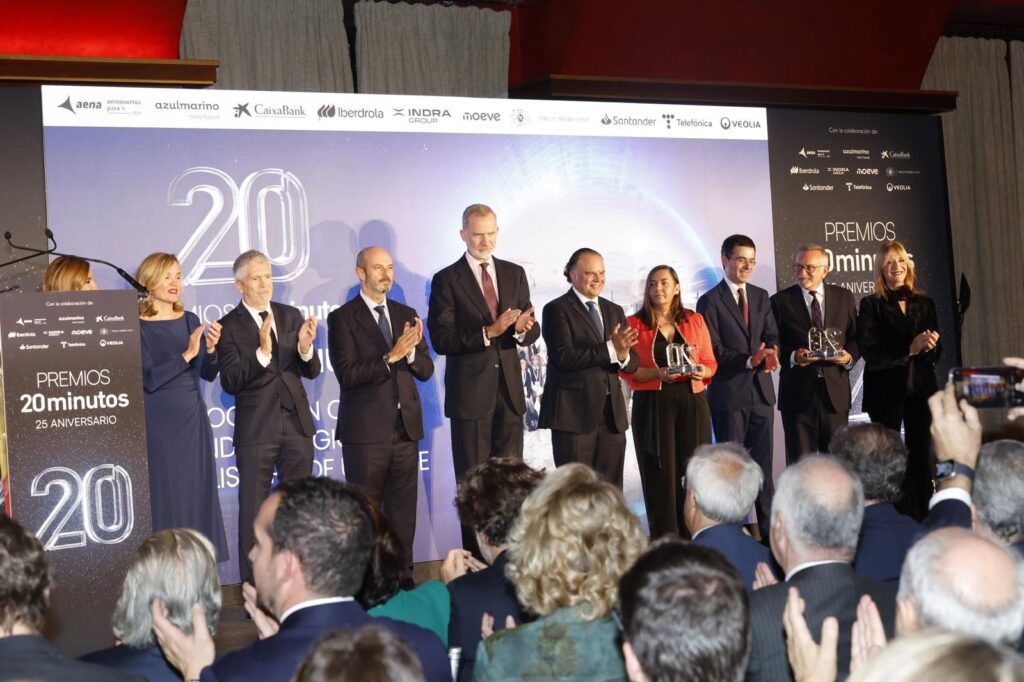
Will there be any new projects following your visit to Madrid? Could you share your plans?
— Yes, the first results are already taking shape. During the visit, we agreed that Spanish media outlets will join our Emergency Support Program for Regional Media — a program designed for newsrooms that have suffered severe consequences of the war: shelling, destruction, loss of equipment, or forced evacuation, and that continue to work under extremely difficult conditions, producing socially important content. Very soon, financial assistance will arrive in Ukraine, allowing us to support even more local newsrooms affected by the war.
What was the most significant aspect of this trip for you personally? Did it reveal a new source of strength to keep going?
— Above all, it was an opportunity to remind the world about what truly matters. In Spain, I spoke on behalf of more than 330 Ukrainian media outlets that have closed because of the war. On behalf of those who can no longer speak — the journalists who were killed or tortured. On behalf of the abducted civilians, our colleagues who remain in russian prisons.
It was also a chance to remind people how many newsrooms are still trapped under occupation and cannot work, because doing so would mean risking their lives. We are paying a high price for the most fundamental human values — the right to live, to be Ukrainians, to tell the truth, and to preserve freedom of speech.
At the same time, it was a professional opportunity to seek new sources of support for regional media. Unfortunately, words alone cannot sustain the fight. Without resources for printing, distribution, reporting trips, or insurance for teams, it is impossible to keep independent journalism alive. Financially weak media are always vulnerable — exposed to pressure and influence. That is why our mission is to help regional outlets remain strong and self-sufficient.
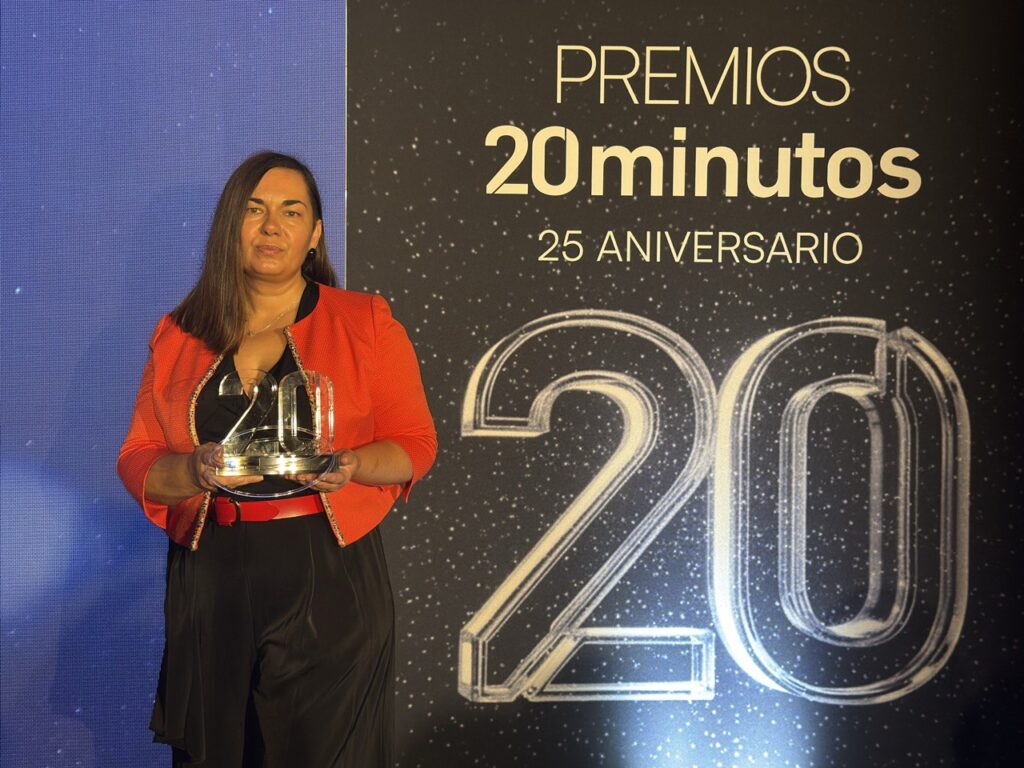
And what about your personal source of energy? Where does it come from?
— After meetings like this, there’s always an extra surge of energy. Yes, we all get tired, but when you return home, a new breath opens up — a renewed desire to act, to create new projects, to support others, and to believe in victory.I’m just like everyone else: I also get tired, and there are times when it’s hard — both physically and emotionally. But moments like these — meeting King Felipe VI, talking with Fernando de Yarza López-Madrazo, and connecting with such remarkable people — recharge and inspire me.
On my way back from Madrid, border checkpoints stopped working because of a database failure. One of the airport staff in Warsaw asked me, «And your next flight — is it to Ukraine»? And at that moment, I once again realized why we must keep speaking — again and again. Because no matter how much it may seem that we’ve already said everything, there will always be meaning and need in saying more — in deciding what to say and to whom.
We have to find inner motivation, our own guiding star that leads us forward, and continue making our contribution to our shared cause — to survive, to preserve ourselves as a nation.
Prepared by Nataliia Burlaku, specially for the AIRPPU
